I used to think it was wonderful when all these big corporate organisations, from coffee shop chains to world sporting tournaments adopted the rainbow flag.
Sure, there was always something of the kitschy bandwagon to it but, as a gay woman, it made me feel happy. Accepted and included.
Small gestures with a big message are all fine and dandy until they’re not.
And this week’s Qatar World Cup demonstrates how quickly these gestures of LGBT solidarity can fall apart – and the wreckage of pain and ill-feeling they leave behind.
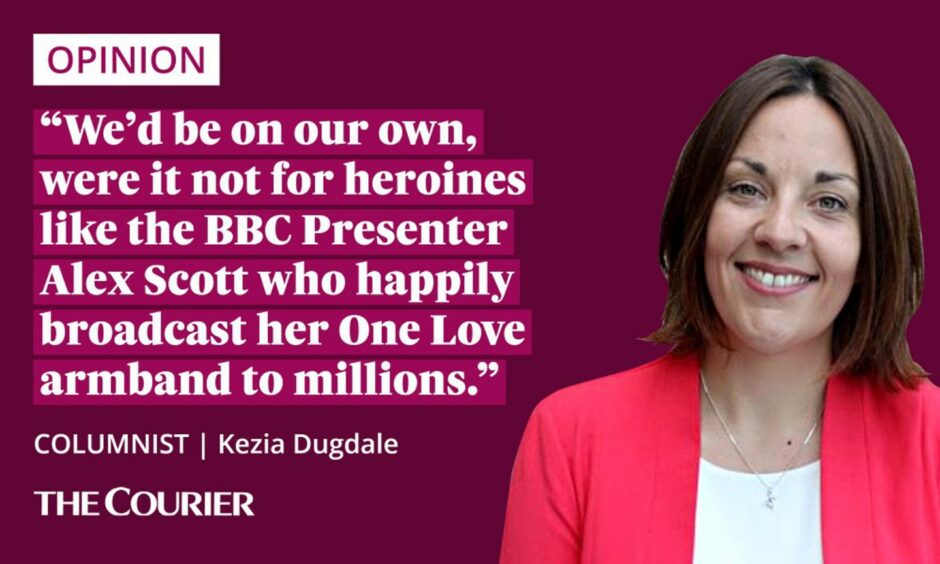
Look at the pre-match build up to England’s game against Iran and the contrast it represents.
In refusing to sing their national anthem in protest at their country’s political regime denying women their most basic human rights, some of those Iranian players may now have to claim political asylum because it’s not safe for them to go home.
They’ve just endangered their lives on global TV in order to stand up for what they believe in.
Meanwhile, the England team abandon their pre-announced plan to wear a rainbow One Love armband for fear of getting a piddly yellow card.
That’s the same card that can be dished out for a thoughtless tackle, an over-celebration of goal glory or for taking too long with a free kick.
They are all worth it, but my rights are not.
England’s Captain Harry Kane has had 36 yellow cards in his football career, but he wouldn’t take one for me.
Qatar World Cup decisions cast shadow over LGBT support
Until this world cup Harry Kane was an LGBT Ally, as was David Beckham.
Both were celebrated for laying the groundwork to eradicate homophobic behaviour from the beautiful game, slowly but surely creating an environment that would allow gay footballers to come out.
But you’re no friend to me if you’re not there when it gets hard.
Could there be anything shallower than a principle so readily abandoned?
Beckham has cashed in – his sponsorship deal with Qatar leaves him reportedly the wealthiest footballer in the world.
To paraphrase Dolly Parton, it takes a lot of money to look this cheap.
Pride. That’s what the rainbow represents.
It’s what you are signing up to every time you carry a rainbow cup or drink in our bars or nightclubs.
The opposite of Pride is shame and that is something the LGBT community was forced to carry for decades, so apologies if we’re a bit sensitive.
And let’s be clear, no one is asking Harry Kane, or Gareth Bale for that matter, to face down the Emir of Qatar.
It was just a wee armband that said to every gay fan watching the Qatar World Cup ‘you’re ok because you’re with us’.
German side and Alex Scott have proven their LGBT allyship
The German team know why it matters.
Ahead of their first match against Japan, they posed covering their mouths – highlighting the fact they’d be gagged with the instruction not to wear an armband.
That’s allyship.
To paraphrase Fifa Chief, Giovanni Infantino, today I am German.
This is what pride and allyship look like. Today I am German… 🌈💪 https://t.co/n93K3gQXnT
— Kezia Dugdale (@kezdugdale) November 23, 2022
For years we knew this sporting event was taking place in country where a man would get up to seven years in jail for having sex with another man.
Sport is supposed to be one of the best tools in the soft global power box.
Yet in Qatar we’re watching fans refused entry for wearing T-shirts with the slightest hint of a rainbow on them.
We’re not just capitulating, we’re condoning it with both our inaction and the broken promise made to fans by players who said they’d take a stand until they wouldn’t take a yellow card.
We’d be on our own, were it not for heroines like the BBC Presenter Alex Scott who happily broadcast her One Love armband to millions.
She didn’t need to say a word but it was worth thousands.
That’s what it means to be an ally.
Everything else is vacuous showboating and sadly that’s what these World Cup teams now stand for on LGBT rights.
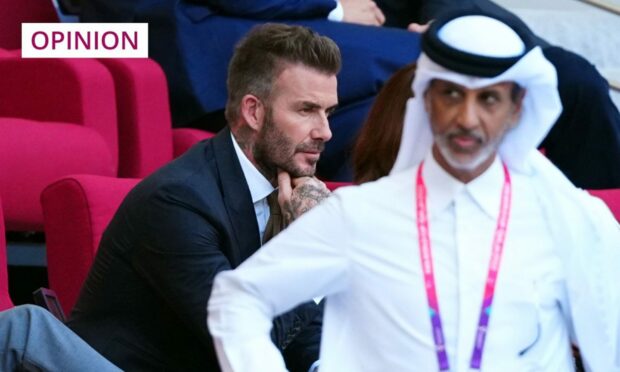
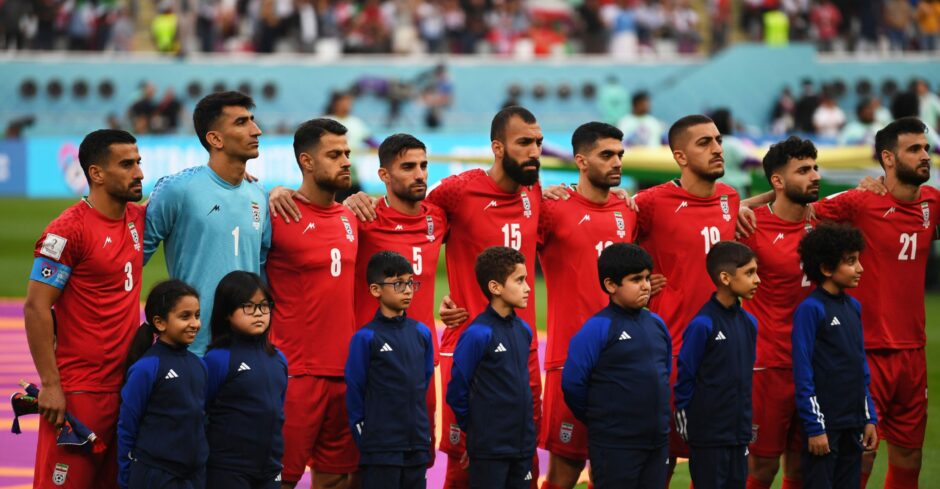
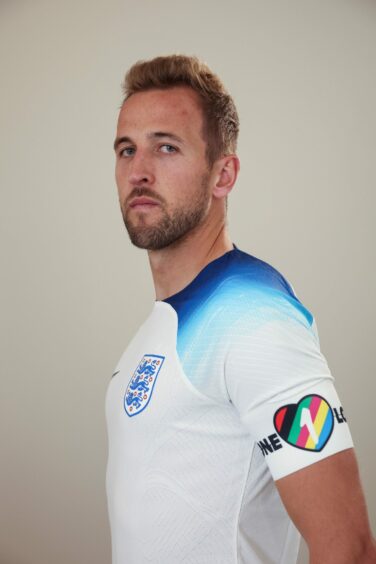
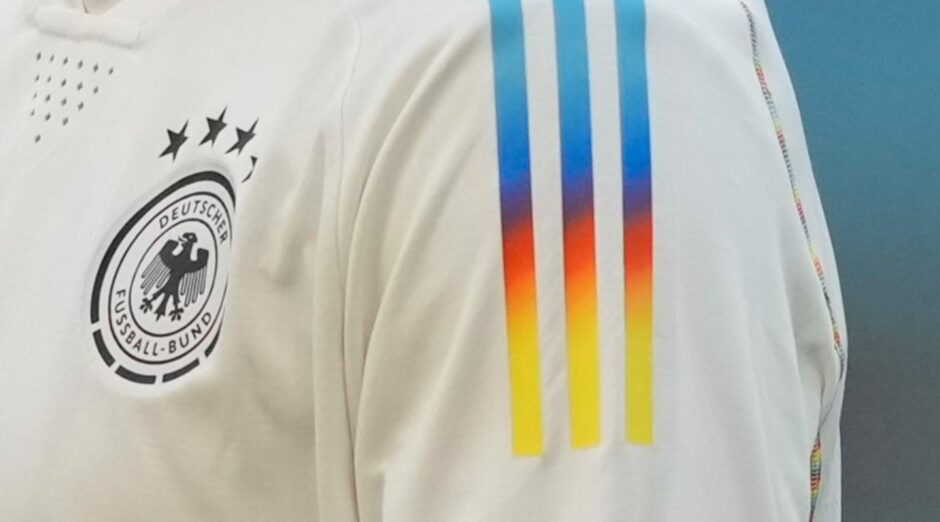
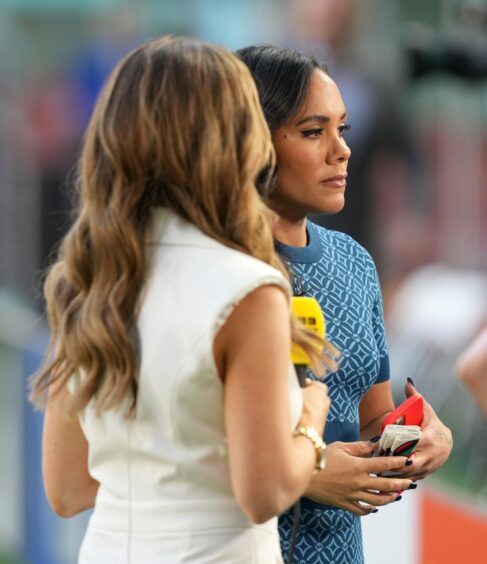










Conversation